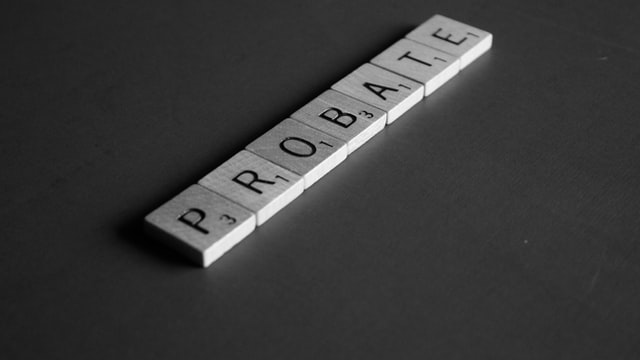Probate is a beneficial process that protects you or your loved one’s wishes after death. It might seem like an overwhelming responsibility, but it doesn’t need to become one. This article will help educate you by answering ten of the most common questions regarding Probate in Pennsylvania.
As you continue reading, this article will also answer the most popular question, “how long do you have to file probate after death in Pennsylvania?” The short response is that there’s no set deadline, but the law requires you to pay the inheritance in full within nine months. Continue reading below to read the detailed answer to this question.
What is Probate?
Probate is a legal, court-supervised proceeding that reviews the deceased person’s Will. If there’s no Will in place, the court will handle all decisions. It’s important to note that every state’s Probate process is different. Therefore, this article will only focus on the Probate process in PA.
During the legal process, the court will:
- Authenticate the Will if there is one in place
- Approve or name an Executor
- Assess all assets for their total value
- Pay taxes and debts are the remaining estate’s value
- Distribute assets for the inheritance
10 Common Questions Regarding Probate in PA
Whether you’re planning for the future or need to learn more about Probate in PA, here are the ten most common questions to help you understand Probate better.
Are All Estates Required to Go Through Probate in Pennsylvania?
No, if the deceased person’s assets are jointly owned or left a Will that names beneficiaries, then Probate isn’t required. However, if any assets only include the deceased’s name or there’s no Will in place, then Probate is needed.
How Long Do You Have to File Probate After Death in Pennsylvania?
Although there’s no set deadline for filing Probate, Pennsylvania law requires that you pay the estate’s inheritance tax in full within nine months after the owner has passed. If additional time is needed, you’ll need to request an extension.
Are There Assets That Can Skip Probate?
Any jointly owned assets or assets with a beneficiary listed can skip Probate. The most common assets include:
- Jointly owned property, i.e., house or bank account
- Payable-on-death (POD) bank account, retirement plan, or life insurance policy
- Assets listed in a Living Trust
Is There a Simplified Probate Process for Small Estates?
Yes, if PA values the estate at less than $50,000, you can use a minor estate process instead of the typically lengthy process. An experienced Probate attorney can review the estate to determine if it’s eligible for this more straightforward option.
What Happens During a Formal Probate Process in Pennsylvania?
A formal Probate process is lengthy and expensive. The Executor will handle all the responsibilities and file the Will. If there’s no Will, then the surviving spouse or close relative serves as the Administrator and manages all the duties.
Here is a summary of how the court conducts the process.
- The Executor files a Petition for Probate with the court
- Complete required forms online (there’s an added cost to complete the forms)
- Letters of Testamentary or Letters of Administration are sent to the Executor/ Administrator
- Inform all heirs, beneficiaries, creditors, and the public of the Probate proceedings
- All estate assets are gathered and inventoried
- Debts and taxes are paid
- Sell property if needed
- Pay the PA Inheritance Tax within nine months of the person’s passing (if paid early, you receive a discount)
- Executor shows a final accounting of all assets and property with a distribution plan
- The remaining assets are distributed after you pay all taxes and debts
How Long Does Probate Take?
It varies depending on the estate’s size and which Probate process you’re using. Typically, you can expect Probate to last a year to a year and a half.
How Much Does Probate Cost in Pennsylvania?
The cost will vary depending on the estate size, if a Will is in place, and several other factors. You can plan to cover these costs during the Probate process:
- Attorney fees
- Probate fees
- Probate bond (paying bond is rare because most lawyers put that it’s not required)
- Advertising legal notices
- Accounting fees
How to Avoid Probate?
Before you pass, you can put plans in place to help save your loved one’s time and money. Here are a few ways you can help your family avoid Probate or limit the assets being probated.
- Create a Living Trust
- Give your assets to loved ones before you pass
- Keep your estate small
- Title all your property, so it’s jointly owned
What are Probate and Estate Administration Services?
There are skilled and trustworthy Probate attorneys who can help you throughout the entire process or only for a small portion of it. At Auld Brother’s Law Group, our Probate and Estate Administration services include:
- Petition the court to have you selected as the Executor or Administrator
- Assist in securing and managing estate’s assets
- Draft and file Inheritance Tax or final income tax returns
- Manage claims or creditors of the estate
- Prepare the pleading to close the estate
- Distribute estate assets
Do I Need a Probate Attorney?
Depending on the estate, a Probate attorney could provide some much-needed assistance throughout the process. Read our article on When to Use a Probate Attorney in Pittsburgh to learn the five questions you should ask yourself to help determine when you should hire an attorney.
Simplify the Probate Process with Auld Brother’s Law Group
Rebecca A. Auld is an experienced Probate attorney who has advised many Pittsburgh individuals and families throughout Probate. Rebecca is here to help educate you and make the process easier to manage.
Contact us to learn how our Probate and Estate Administration services can help you.

